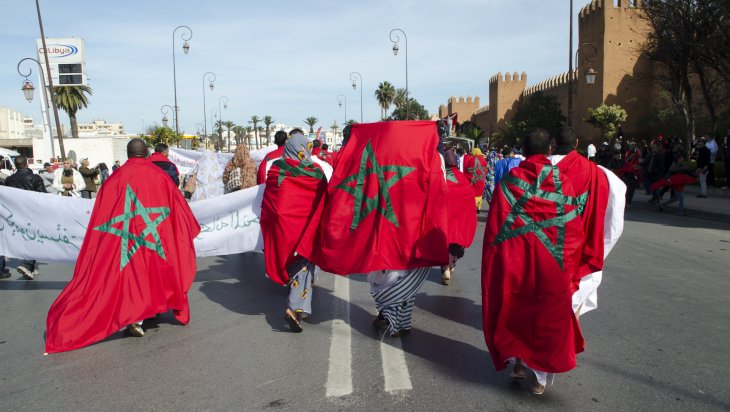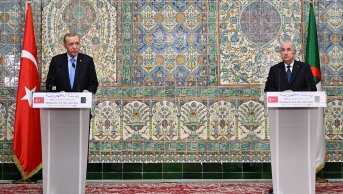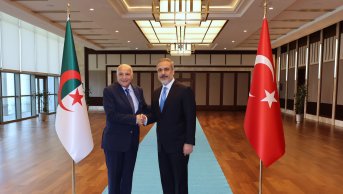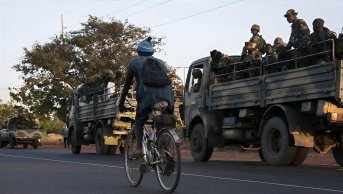Is Morocco Normalization the Last Nail in the Coffin for the Arab Maghreb Union?

On December 10, 2020, U.S. President Donald Trump, weeks before leaving the White House took a major risk in his fiasco MENA foreign policy, inflaming further tensions this time in the Maghreb region. In exchange for Rabat's “normalization” of its relations with the Jewish state, President Trump announced that Washington recognizes Morocco's sovereignty over the Western Sahara, a disputed territory for which the Sahrawi people led by the Polisario Front vehemently defend the self-determination claim through the legal framework of the U.N and the A.U.
This is the fourth official normalization agreement concluded between the Jewish state and an Arab country. Thus, this is the first U.S. administration that is explicitly causing problems on the ground in the relatively stable Maghreb region. King Mohammed VI’s Israel policy stands in the historical trajectory of Moroccan sovereigns towards the Moroccan Jewish community in the Kingdom and in Israel.
A Long-Disputed Territory or (a Frozen Conflict)
The Moroccan-Israeli normalization news has appeared like a Christmas fairy tale. Morocco, however, has used the exchange card for the recognition of the U.S. administration of Morocco’s sovereignty in the disputed territory of Western Sahara. This is a territory that has been disputed for more than four decades and has a legal status which is being discussed at the UNGA and UNSC, since the Sahrawi people have asked for their independence through legal tools: negotiations and self-determination principles.
The status of negotiations has been on hold for decades. Following the announcement of the U.S. administration’s recognition of the disputed territory as full sovereign Moroccan territory, the Polisario Front on the other hand has proclaimed that it will continue the armed struggle. The Polisario Front insists on organization of a self-determination referendum led by the U.N in the disputed territory until President Trump’s short-term deal with Rabat came into sight.
Under these complex circumstances the Moroccan-Israeli normalization agreement is the last nail in the coffin of the Arab Maghreb Union. The Arab Maghreb Union, better known by its French acronym l’UMA, was founded as an economic and political union, bringing together the five Maghreb countries. The agreement establishing the AMU was signed in Marrakesh, Morocco in February 1989 by then-Leader Muammar Al-Gaddafi of Libya, then-President Zine- Al-Abidine Ben Ali of Tunisia, then-Algerian President Chadli Bendjedid, late King Hassan II of Morocco, then-President Maaouya Ould Sid-Ahmed Taya of Mauritania.
A Stillborn Integral Arab Masses Dream
Thirty-two years later, one could say that the Arab Maghreb Union integral project had failed. The idea of unifying the five Maghreb countries goes back to the North African Star (ENA), this being an association founded in France in 1926 by young Maghreb immigrant elite and workers.
Among its members were the Algerian Haj Ali Abdelkader. Later, in 1958 when the three political parties from Algeria, Morocco and Tunisia met in Tangiers, Morocco, they decided to re-launch this integral project to bring the Maghreb people and states together.
Later on, these three countries were freshly independent and each country was then overwhelmed with rebuilding its own state and was worrying about each country leader’s megalomania status.
The masses’ ambitions stayed alive in 1989. A summit of the leaders of the five Maghrebian countries gave a ray of hope to millions of people and paved the way for new political era. This ended a quarter century of rhetorical tensions between Algiers and Rabat. Nonetheless, the Arab Maghreb Union euphoria did not last much longer. Three years later Algeria entered into a bloody war against the civilians. As a result, in 1994 Rabat decided to close the borders with its eastern neighbor in the aftermath of the Marrakesh terrorist attack, after Morocco accused the Algerian armed group (GIA) along with the Algerian intelligence service of the Marrakech attack. Since then, political differences, territorial disputes and domestic political upheaval made it impossible to hold even a single ministerial meeting.
Despite the homogenous religious, cultural, geographical and historical factors, politics, however, has always been an obstacle. Even on culinary matters, these countries are still fighting, whose couscous dish is the best! In the 1990s, there were two main obstacles that local media and secular politicians and elite were arguing about. These were the failure of this sub-regional integral system, Islamism and Berberism. These two domestic political imperatives were seriously challenging the regimes, (in Algeria for instance.) In Tunisia the Berber question was not a hot item like the Islamism question, it was an imminent threat to the Ben Ali regime. Hence the Berber question was also a thorny topic in Libya. In Morocco neither Islamism nor Berberism was a threat because the King is the believer-in-chief, and had used an inclusive linguistic program in the kingdom. In Mauritania, the military control over the quiet country had the capacity to manage the tribal structures in the society.
Yet the question of Western Sahara was the main obstacle of achieving the dream of hundreds of millions of people in the Maghreb. So, the Western Sahara was a “wait-and-see” issue within the AMU members. The first five years that followed the AMU’s creation was celebrated in all five countries and almost every couple of months there were AMU ministerial meetings or experts' gatherings focusing on further integration process.
The AMU countries are rich in oil, agricultural products, phosphates and other minerals including gold. They have the potential to become an economic power capable of competing with their northern neighbors: the European Union (EU). Though, the disputed Western Sahara territory presents collateral damage for the populations of these countries. Demographically, the AMU includes nearly 100 million people with a total area of over six million square km, extending from Libya to Mauritania. Yet the bilateral trade between its members is less than 15 per cent of the potential total. The remaining trade occurs between member states and foreign parties including European countries.
In the wake of the COVID-19 pandemic, the population has suffered greatly because of timid coordination between the five countries, in this perspective Algeria did send medical aid to Mauritania and Libya as a fraternal gesture. The pandemic unmasked the dislocation of the entire healthcare system in these countries, adding problems to the dire situation in Libya, which has added another layer to the AMU's failure.
Rabat and Algiers have been trying to act like a credible middleman in the Libyan civil war. Consequently, both countries are hostages of regional and international superpowers in a geo-political context that is pushing the Maghreb countries to lose full traction in the ongoing turmoil in the region. The normalization agreement between Morocco and Israel has made the outcome of the so-called frozen conflict and endless cold war between Rabat and Algiers to be stopping any progress in their relations and paralyzing the Arab Maghreb Union. It has also meant that the leaders of the Maghreb countries are making a better life more difficult for millions of people.
So far, the integral sub-regional system has failed, and the leaders of the Maghreb countries are having a hard time to convince their populations to accept the project even as an idea. Recent events across the Maghreb region have produced poor results. Given the multitude of security and instability problems in Libya, political tensions in Tunisia, Algeria, Mauritania, and Morocco that seem calm. Yet the social volcano is boiling and could hardly provide any hope.
Therefore, the waves of the Arab Spring were at first thought to be a healing process in terms of freedom and development in the region. Yet these waves have so far shown instability and, to some extent, chaos. As a result, the antidote is the theory of the strongman attitude, this political tool imposed by the counter-revolutionary camp led by some regional and superpowers, i.e., Khalifa Haftar in Libya. Such an attitude would not help the Maghreb countries to inject life support into the AMU body. The AMU is in intensive care and to some analysts is clinically dead. The AMU came to an end because of a lack of sincere political will from the leaders of the Maghreb countries, and the failure to separate the macro-economic integration dynamic from the societal factors, and eventually the dispute over the Western Sahara territory.











